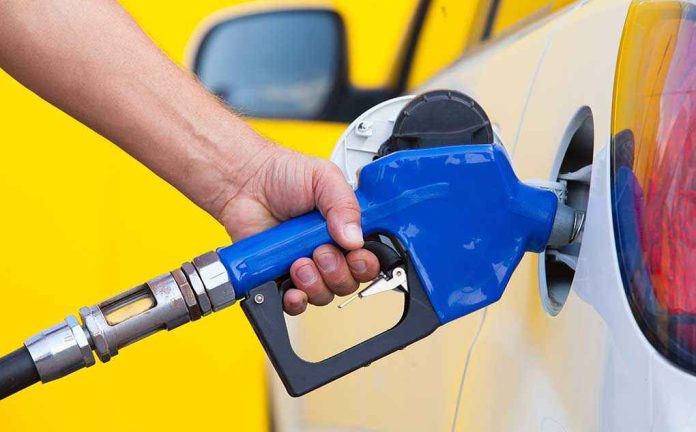
After Oregon lifted its ban, New Jersey stands alone as the only state in America where drivers are still prohibited from pumping their own gas, raising new questions about individual freedom, outdated laws, and economic efficiency.
Story Snapshot
- New Jersey remains the last state with a self-serve gasoline ban after Oregon repealed its law in 2023
- The ban, rooted in 1949 legislation, is now widely viewed as economically and culturally outdated
- Advocates argue for consumer choice and modernization, while opponents cite job protection and tradition
- National safety and industry data undermine the original rationale for New Jersey’s unique law
New Jersey’s Gas Pumping Ban: America’s Last Holdout
New Jersey’s prohibition on self-serve gasoline, first enacted in 1949, makes it the only state in the nation where drivers cannot legally pump their own gas. While this law was initially justified by safety concerns, historians and industry analysts agree its passage was also driven by business interests seeking to stifle competition from lower-priced, self-service stations. With Oregon’s 2023 repeal of its own ban, New Jersey’s unique status has reignited debate over the relevance and fairness of the law in 2025.
The Retail Gasoline Dispensing Safety Act has become a cultural cornerstone in the Garden State, producing slogans like “Jersey girls don’t pump gas.” Yet, critics argue the law lags behind the rest of America, restricting consumer choice and economic freedom. Today, every other state allows drivers to fuel their own vehicles, and the overwhelming majority of Americans have safely embraced the practice. Oregon’s gradual move toward self-serve, culminating in a full repeal, played out without the safety issues that once justified such restrictions elsewhere.
Economic, Political, and Social Impacts of Maintaining the Ban
The economic arguments for keeping the ban are growing weaker. National industry data confirms that fears of fire hazards or accidents have not materialized in the 49 states where self-serve is now standard. Economists and business associations point out that allowing self-service could lower gas prices by reducing labor costs for station owners, savings that could be passed on to consumers. However, labor advocates and gas station attendants warn that repealing the law would cost jobs, disproportionately affecting low-wage workers who rely on these positions for income.
Public opinion in New Jersey is split. Some residents take pride in the tradition and appreciate the convenience, particularly in harsh weather or for seniors and people with disabilities. Others, frustrated by higher prices and longer wait times, see the ban as an unnecessary relic that places the state out of step with modern America. The political stalemate reflects these divisions, with legislative proposals to end the ban repeatedly stalling in committee over the past two years.
Pressure Mounts for Legislative Reform
Following Oregon’s 2023 repeal, advocacy groups and media outlets have renewed calls for change in New Jersey. Industry experts, including the National Fire Protection Association, note that safety data from other states does not support the continued prohibition. Economists and retailers stress that self-serve fueling is efficient, cost-effective, and aligns with American values of personal responsibility and freedom of choice. Despite these arguments, entrenched interests and a vocal segment of the population continue to defend the law, citing job security and a distinctive state identity.
State lawmakers remain the ultimate decision-makers, balancing pressure from business groups seeking deregulation, labor organizations defending jobs, and constituents divided between tradition and modernization. Without significant legislative action, New Jersey risks further isolating itself, maintaining a policy that many Americans—and a growing number of its own residents—view as outdated and paternalistic.
Looking Ahead: Will New Jersey Modernize or Stand Alone?
As of August 2025, New Jersey’s self-serve gas ban endures, making it an anomaly in a nation that otherwise values individual autonomy and market-driven solutions. The ongoing debate highlights broader questions about the state’s willingness to adapt to changing times and consumer preferences. With the rest of America moving forward, pressure is mounting for New Jersey lawmakers to finally reconsider a law that stands as a symbol of government overreach and resistance to common-sense reform. If legislators act, the state could join the rest of the country in trusting its own citizens at the pump. If not, New Jersey’s full-service tradition will persist—at the cost of higher prices, limited choice, and a missed opportunity for economic modernization.
For conservatives who value freedom, efficiency, and a government that trusts its citizens, New Jersey’s gas pumping ban remains a telling case study in the importance of challenging outdated regulations and defending the principles that keep America exceptional.
Sources:
Hoboken Girl: History and context of New Jersey’s gas pumping ban
NACS: National history of self-service fueling and regulatory changes
Monmouth Magazine: Economic and political origins of New Jersey’s ban





